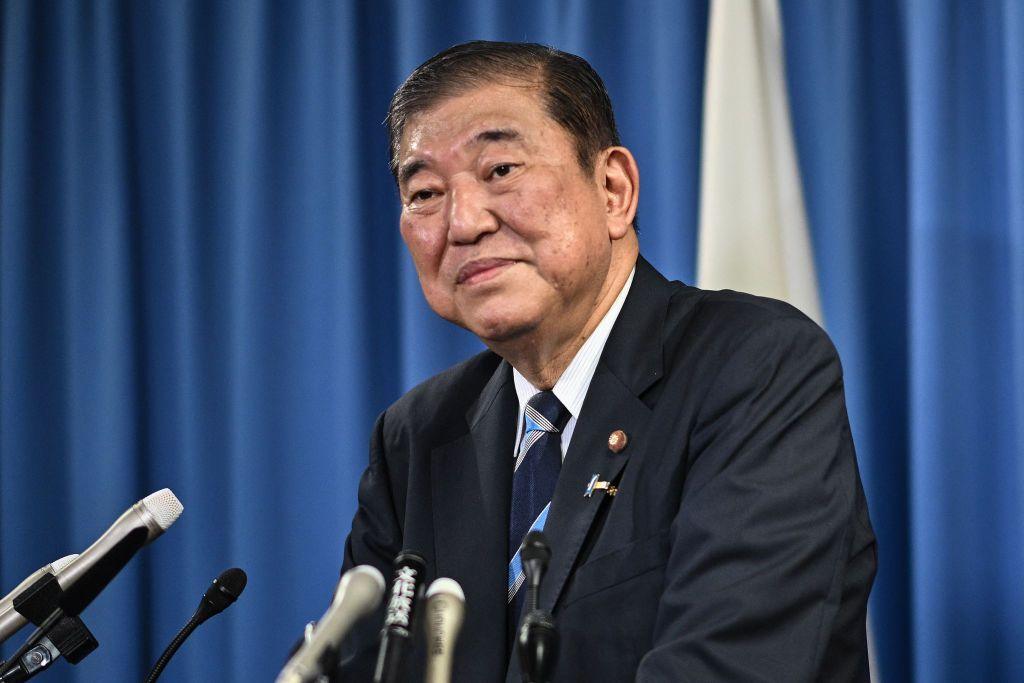Japan's incoming PM announces snap October election

Shigeru Ishiba was named new leader of Japan's ruling party on Friday
- Published
A mere three days after being elected as the new leader of Japan’s ruling party, incoming Prime Minister Shigeru Ishiba has announced plans for a snap election on 27 October.
Ishiba, 67, replaced outgoing prime minister, Fumio Kishida, as chief of the Liberal Democratic Party (LDP) on Friday, following a tight race that saw him securing more votes than any of the other eight candidates.
Since the LDP has a parliamentary majority, Ishiba will be approved as prime minister by parliament on Tuesday.
"It is important for the new administration to be judged by the people as soon as possible," Ishiba said at a press conference in Tokyo on Monday, according to Reuters.
The election, which is set to take place more than a year before it is due, will decide which party controls parliament's lower house.
Earlier in the day Ishiba began picking government and party officials who will contest the upcoming general election with him, including two influential former prime ministers: Taro Aso, as adviser, and Yoshihide Suga, as vice-president.
Ishiba also asked Shinjiro Koizumi, a popular rival in Friday's leadership race who enjoys a favourable standing with the Japanese public, to serve as election strategy chief.
However, Sanae Takaichi, the hardline female conservative that Ishiba closely beat in the runoff to Friday's poll, was not included in Ishiba's picks.
After winning Friday’s leadership election, Ishiba said he would revitalise Japan’s economy, address security threats and clean up the LDP, whose approval ratings have plummeted in recent months amid public scandals and internal conflicts.
Chief among these scandals are revelations regarding the extent of influence that Japan’s controversial Unification Church wields within the LDP, as well as suspicions that party factions under-reported political funding over the course of several years.
The latter controversy fuelled mass public outrage and wounded then Prime Minister Kishida’s political standing, leading to his announcement in August that he would not seek re-election as LDP leader.
"In the upcoming presidential election [for the LDP], it's necessary to show the people that the party will change," Kishida said at a press conference last month, when announcing his decision not to run for another term.
“For this, transparent and open elections and free and vigorous debate are important.”
Shortly after taking up the mantle on Friday, Ishida echoed his predecessor’s words.
"We ought to be a party that lets members discuss the truth in a free and open manner, a party that is fair and impartial on all matters and a party with humility," he told reporters.
Despite the scandals, the LDP, which has ruled Japan for most of the post-war era, remains the country’s most popular political party.
The last two weeks of campaigning for its leadership were also seen by experts as an audition for the general election – meaning candidates presented themselves not only to fellow party members but also to the public, in an attempt to win over the electorate.